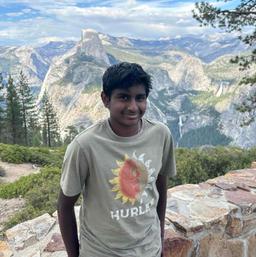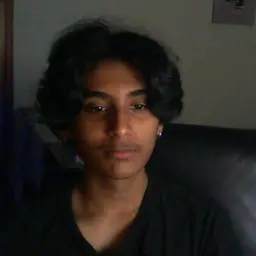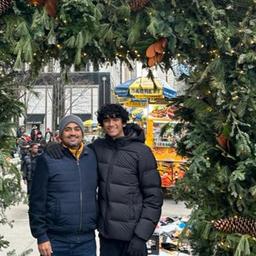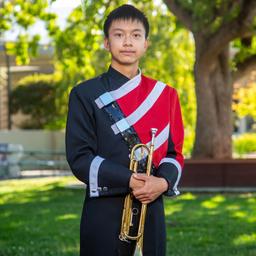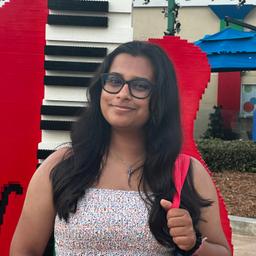Although rock stars, opera divas, instrumental virtuosos, and classic composers such as Bach and Mozert may grab the spotlight, careers in music extend way beyond performance and composition. Music therapists use music to address physical, emotional, and cognitive needs, from neurological disorders to emotional trauma. Sound engineers shape the auditory landscape of films, games, and live events. Music educators empower students with skills, discipline, and a lifelong appreciation for the arts, shaping the next generation of musicians. Music technologists revolutionize how we create and consume music, fostering cultural exchange and creative expression. These careers can take place in hospitals, recording studios, schools, tech companies, and even unconventional settings like hospices or research institutions.
Music research can involve exploring composition techniques, performance practices, and the impact of technology on music creation. Your research in turn can help foster emotional well-being, cultural understanding, and technological innovation. Here are a few categories that music research can fall under:
Musicology involves the scholarly study of music history, including the analysis of compositions, genres, and historical contexts.
Ethnomusicology explores the cultural and social aspects of music, focusing on the study of music in specific cultural or ethnic contexts. This type of research might also examine the role of music in shaping cultural identity, social movements, and political expression, exploring its impact on society at large.
Music Theory delves into the principles and structure of musical composition, including harmony, rhythm, and form.
Music Cognition investigates how the brain processes and perceives music, exploring topics like musical memory, emotion, and the impact of music on cognitive functions.
Music Technology involves the development and application of technology in music creation, production, and performance.
Performance Studies focuses on the interpretation and execution of musical works, examining the techniques, expression, and historical performance practices.
Music and Health explores the therapeutic effects of music, including applications in music therapy for mental and physical well-being.
Whether you play an instrument, sing, or have an interest in music production, take the time to figure out what truly resonates with you. Chat with your band or orchestra teachers, and don't shy away from experimenting with various genres. Attend as many concerts, workshops, and music events as you can—immersing yourself in the music scene can be super inspiring. Start your own band or perform solo. Follow your favorite artists and bands on social media and Spotify; it's a great way to stay connected and learn from the pros.
As you develop your listening, performing, recording, instrument-making, event-organizing, or other musical skills, think about what types of music excite you the most. Keep a journal of favorite songs and artists. Here are some more detailed ideas to help you on your way.
1. Take a Class in High School
Not all schools offer all of the following classes. Luckily there’s a wealth of online resources you can use such as Berklee Online, Lessonface, Soundfly, Kadenze, Skillshare, Udemy, and Coursera, just to name a few options. You can also ask around for local music lessons if you’re interested in learning how to play a specific instrument. Check your high school course list for these:
Music Theory is the backbone of musical understanding. Taking this class will deepen your knowledge of musical structures, harmony, and composition, providing a solid foundation for any career in music.
Digital Audio Production will introduce you to recording techniques, digital software, and music production tools, valuable skills for a music career in this digital age. Even if you love old instruments, understanding this technology is crucial for recording them.
Ethnomusicology exposes you to a variety of global musical cultures, broadening your perspective and fostering creativity.
History courses provide cultural context, help you trace musical evolutions, reveal the impact of events, foster interdisciplinary connections, and develop your critical research and writing skills.
Business classes provide insights into marketing, management, and entrepreneurship, essential for navigating the music industry and self promotion.
Public Speaking helps you develop your stage presence so you can articulate thoughts clearly, and engage with audiences.
Creative Writing classes nurture your ability to express ideas eloquently, enhancing your songwriting skills and overall communication through music.
Psychology or Sociology provide insights into emotions, culture, and societal dynamics, enriching your ability to connect with listeners. Understanding human behavior is key in creating music that resonates.
Graphic Design or Visual Arts classes help you create visually appealing promotional materials, album covers, and a cohesive brand image.
2. Read a Book
The beauty of music is that it requires no written or spoken words to understand it, but if you’re interested in the behind-the-scenes aspect—its history, the science of how it is made and understood, or any other facet around the making and enjoyment of it—you will need to do some reading. From unraveling the complexities of composition and exploring music’s neurological impact to uncovering the secrets of pop hits and heartfelt life stories of your favorite musicians, these books will resonate with your passion for music.
The Study of Orchestration by Samuel Adler (1982) - This book is a comprehensive guide to orchestration, essential for understanding how different instruments work together in compositions.
The Inner Game of Music by Barry Green and W. Timothy Gallwey (1986) - Focused on the psychological aspects of music, this book explores performance anxiety, self-doubt, and ways to overcome mental barriers.
How to Read Music in 30 Days by Jake Jackson (2011) - Perfect for beginners, this book provides a straightforward approach to reading sheet music, a fundamental skill for any musician.
This Is Your Brain on Music: The Science of a Human Obsession by Daniel J. Levitin (2006) - Levitin explores the neuroscience behind music, offering insights into why music is a universal human experience.
The Song Machine: Inside the Hit Factory by John Seabrook (2015) - Seabrook delves into the world of pop music and the mechanics behind creating chart-topping hits, providing a contemporary look at the music industry.
The Power of Music: Pioneering Discoveries in the New Science of Song by Elena Mannes (2021) - Elena Mannes explores the transformative power of music, weaving together scientific discoveries and the personal stories of musicians, including the impact of music on their lives.
Artist biographies and memoirs offer a captivating glimpse into the lives of musicians, providing context for their artistry and shedding light on the human experiences that shape their work.
Every Good Boy Does Fine: A Love Story In Music Lessons by Jeremy Denk (2021) - In this wonderful memoir, Jeremy Denk, a celebrated pianist and writer, shares his personal and musical journey. It offers a unique perspective on the intersection of life and music, providing insights into the challenges and joys of a musician's life. Jeremy Denk's memoir adds a personal touch to the exploration of music, making it a compelling read for anyone interested in the life of a musician.
Mozart: A Life by Peter Gay (1999) - Peter Gay provides a detailed and engaging account of Wolfgang Amadeus Mozart's life, offering insights into the genius behind some of the world's most iconic classical compositions.
Bird: The Life and Music of Charlie Parker by Chuck Haddix (2013) - Chuck Haddix explores the tumultuous life of jazz saxophonist Charlie Parker, delving into the complexities of his music and the challenges he faced.
Joni Mitchell: In Her Own Words by Malka Marom (2014) - This book features a series of in-depth interviews with Joni Mitchell, providing a firsthand account of her life, career, and the creative process behind her groundbreaking music.
Especially look for audiobook versions of these memoirs, many of which incorporate music into the stories. Also check out podcasts like Song Exploder and That Classical Podcast, which break down popular and classical songs, offering insights into the creative process behind music. You can also subscribe to magazines like Billboard and Rolling Stone for pop music news, interviews, and reviews. And of course you can catch performances on Netflix and YouTube.
3. Extracurricular Study
Remember that quality is often more important than quantity when it comes to extracurricular activities. Choose activities that genuinely interest you. Here are some ideas:
Music Production Club - Start or join a music production club where you explore the technical aspects of creating and producing music. Work with digital audio workstations (DAWs), experiment with sound engineering, and collaborate on creating original tracks. This hands-on experience builds practical skills in music technology and production, valuable for a career in the modern music industry.
Film Club - Film and TV show scores are a huge component of today’s music scene. Collaborate with your school's film club or aspiring filmmakers to score soundtracks for short films or documentaries. This unique experience hones your ability to create music that enhances visual storytelling, providing a valuable skill set if you're interested in composing for film or television.
Computer Science Club - Explore the intersection of music and technology by joining a coding club focused on interactive music applications. Learn programming languages like Python or JavaScript to create music software, interactive installations, or even design your own musical games. This unconventional approach enhances both your musical and technical abilities, opening doors to careers in music technology and innovation.
Music and Wellness Workshops - Organize or participate in workshops that explore the therapeutic aspects of music. Collaborate with psychology or health clubs to understand and demonstrate how music can positively impact mental health and well-being. Recordings of nature sounds, alpha and delta wave frequencies, and ambient/instrumental music are all said to have calming effects.
Musical Event Organizer - Bring your favorite performers to your school. Or volunteer to bring music to unexpected places, such as retirement homes, hospitals, or community centers. Organize small ensemble performances or music workshops for diverse audiences. This not only cultivates your performance skills but also develops your ability to connect with diverse communities, a valuable asset for a career in music education or community outreach.
Start by reaching out to your school's music department, local bands, or local music organizations. You can find other musicians to collaborate with on online platforms like CollabFinder, Kompoz, ReverbNation, and BandMix. For more scholarly work, contact local chamber orchestras, music festivals, museums, college music departments, and historical societies. Remember, persistence and passion can open doors to exciting research experiences so just put together a good pitch for your research idea and start reaching out. Here are some more specific ways to create opportunities.
Find research programs close to home
We’ll go into summer programs in more depth in the next section, but if you want to find all types of established music research opportunities close to home, our High School Student Research Opportunities Database is an excellent resource. Click on your state, then search based on your location, institution, event type (in-person or virtual), and tuition (paid or free). You can also read our article 6 Music Research Opportunities for High School Students, for more specific inspiration.
Work with a professor
If you have a clear idea of your passions, you can reach out to professors in your field to see if they are open to collaborating with you. Refer to our Guide to Cold-Emailing Professors (written by Polygence literature research mentor Daniel Hazard, a Ph.D. candidate at Princeton University).
Engage in your own research project
Students with initiative and focus can opt to tackle research independently. This can be through Polygence or other self guided efforts. If you want to take a more academic route for your arts project, check out this post on how to write a self-guided research paper by Carly Taylor, a Stanford University senior who has completed several research projects this way.
Enter a competition
Competition deadlines provide a very helpful structure to keep your music project moving forward. For some ideas, check out these top 10 music competitions. Another benefit to attending a competition is meeting other students, teachers, and professional musicians and producers.
Here are some of our top picks for summer music research programs.
1. Girls in Music & Technology (GiMaT)
Hosting institution: University of Michigan
Location: Ann Arbor, MI
Cost: $500
Application deadline: Early February
Music technology, as a field, has been historically male-dominated. This program at the University of Michigan is open to all. Still, it aims to support girls who are interested in applying technology to music through electronic performance and composition, computer programming, production, and more. At the end of the two-week session, participants present their work during an open showcase. The program, which is run through the Department of Performing Arts Technology, has been introducing high schoolers to sound engineering and music technology since 2017.
2. Summer Global Jazz Intensive
Hosting institution: UCLA
Location: Los Angeles, CA
Cost: $1,200
Application deadline: TBA
This week-long intensive course, led by faculty of the Herb Alpert School of Music, is the nation’s first workshop in global jazz studies for high school students. In addition to private lessons with faculty and guest artists, participants engage with topics in progressive performance and composition based on the global jazz repertoire.
3. Interlochen Composition Summer Program
Hosting institution: Interlochen
Location: Interlochen, MI
Cost: $10,080
Application deadline: Mid January
Interlochen is one of the country’s most well-known high schools for music and the arts. Several of my friends and colleagues attended the school and have gone on to successful careers as professional musicians. Through Interlochen’s summer program in music composition, students get to study composition techniques, music history and twentieth-century analysis, music theory, orchestration, as well as topics in music technology.
4. Juilliard Music Theory Courses
Hosting institution: Juilliard Extension
Location: Online
Cost: Varies
Application deadline: Early January
For high school students interested in the field of music theory, mastering the fundamentals through Juilliard Extension (open to high school students around the world) is a great way to get a head start on college-level studies. A variety of online courses are available for students at different levels, including basic ear training, model composition, and analysis of eighteenth- and nineteenth-century harmony and form.
For more ideas, have a look at the full 7 Best Summer Music Programs for High Schoolers post.
1. NYO-USA Apprenticeships
Hosting institution: NYO-USA
Location: New York City metro area, plus world tour
Compensation: Unpaid
Applications deadline: December
Here’s an opportunity to work directly with the NYO-USA administration at Carnegie Hall. Unlike the performance program (which is also renowned in the professional classical music industry), these three high school apprentices work primarily backstage. As a composer, librarian, or orchestra manager, you’ll contribute key components to concerts from behind the scenes.
2. San Diego Symphony High School Ambassadors
Hosting institution: San Diego Symphony
Location: San Diego, CA
Roles: workshops in
Compensation: Yes but unspecified
Application deadline: March
This paid internship is an opportunity for high school students in the San Diego area to work with the administration of the San Diego Symphony. Participants focus on developing skills such as financial literacy, public speaking, resume and interview training in order to become leaders in music organizations. The internship is three weeks long and takes place over the summer.
3. Charles Mingus Internship
Hosting institution: The Charles Mingus Institute
Location: New York, NY
Roles: jazz publishing, education, performance, and promotion
Compensation: Unpaid
Application deadline: Rolling
Charles Mingus was one of the most influential jazz musicians and composers of the 20th century. The Charles Mingus Institute was founded in 1986 to promote his compositional legacy through publishing, education, and performance. Intern responsibilities include sheet music engraving, library maintenance, and archiving historical documents.
Check out the full list of our 11 Top Music Internships for High School Students post.
Brainstorm your own project ideas based on music genres, musicians, or music-related phenomenons that interest you. If you want support, the Pathfinders program gives you the chance to meet with three different mentors who specialize in your field of interest. You can discuss your project ideas with them, and they can help you grow your idea, discover new research techniques, and point the way to great resources and alternative options.
Polygence Scholars Are Also Passionate About
Consider the impact of world events or technology on music. Don't be afraid to blend different elements or dig into niche topics. Your passion will shine through when you choose a subject that genuinely interests you.
Music research projects don’t need to result in an academic paper. You might stage an opera, build a new instrument, or create a community outreach project for kids who want to play violin but can’t get access. You could develop a user-friendly app for practicing scales or make a documentary about your band teacher. The possibilities are endless, allowing your creativity to take center stage in diverse, impactful projects. Here are some ideas from some of our Polygence mentors to get you inspired.
Why does Bach sound like Bach?
We revere master composers like Bach, Vivaldi, and Mozart but their monumental works were not just a product of genius inspiration. Rather, a lost tradition of counterpoint pedagogy deserves a good deal of credit for giving classical music its characteristic sound and polish. In this project, dive into counterpoint and develop an understanding of how it works and how it’s been applied to classical works. Concepts and skills: Counterpoint, music composition
Idea by music research mentor Lucien
Scoring a scene
Have you ever been amazed by soundtracks from films like Interstellar and the Godfather? This is your opportunity to create your own score for a sample scene from a film. Come up with the initial idea for what happens visually in the scene and then brainstorm how you want the viewer to feel through the score. Then, begin to arrange your musical score! For inspiration, you can research several movies and their music to understand how the music elevates the viewing experience. Concepts and skills: Musical composition, film scores, creativity
Idea by music research mentor Cody
Community engaged music activity
Have you ever dreamed of putting together a concert for your community, school, or family gathering? For this project, come up with an interesting idea, write a proposal letter to potential sponsors, network and find collaborators, arrange and oversee rehearsals, and put a wonderful show together! You should also consider how you’d like to advertise the event, whether it’s a show or more of a competition, and how to set up the proper sound system for the event. Concepts and skills: Event planning, community service, marketing, leadership and delegation
Idea by music research mentor Parisa
Take a look at more music research project ideas in our 10 Music Passion Project and Research Ideas post.
Music research projects are a great way to explore music topics in-depth, and there are endless opportunities to tie music studies into other disciplines. Here are a few examples of music projects Polygence alumni have worked on with research mentor guidance and support.
Nishanth created a project where he used a data set of over 2000 Western classical music tracks to train an algorithm to identify which classical composer made a certain piece. Nishanth wrote a research paper discussing his findings (Using Machine Learning to Predict Classical Composers from Audio) and also shared the code he used for the prediction algorithm.
Benjamin was able to create a love song from scratch, where he first started by studying music theory and attending production lessons, before writing the initial lyrics and choosing melodies. Benjamin chose to showcase his work online and you can listen to his original song on YouTube.
Jasmita wrote a research paper exploring the concept of listening to background music while learning new material. In Jasmita's study, she looked into the effects of listening to familiar and unfamiliar music on performance during a reading comprehension task. Learn more about Jasmita’s research project experience with Polygence.
Once you have your subject, think about what format you want to use for your research. Some ideas beyond the traditional research paper could include:
A podcast allows you to verbally communicate your research findings, incorporating musical excerpts and interviews. It's an engaging way to convey your passion for the subject, making it accessible to a broader audience who can appreciate the auditory elements of your research.
A video essay or documentary lets you combine visual and auditory elements. Use this format to incorporate music clips, images, and interviews and post it on YouTube.
Write and perform a piece of music or release a recording of a track on Spotify. This hands-on approach not only communicates your research of a specific musical style, historical period, or technique but also allows you to express your creativity and musical skills. Think of the musical Hamilton!
A blog is particularly effective for reaching online audiences interested in music.You can build on your research cumulatively, building in suspense for your audience as you gain more knowledge yourself. This format is also very inclusive and you can add audio, photography, drawings, and video as needed.
An infographic or visual timeline can help you illustrate the historical development of a genre, artist, or musical movement. This format is concise and visually impactful, making it easy for viewers to grasp key points at a glance.
Choose a format that works best with the nature of your research. Using multimedia elements not only enhances the presentation of your findings but also allows you to connect with your audience on a deeper level, especially in the context of music where auditory and visual components play crucial roles.
If you do decide to go the more traditional route, here’s a great article on how to write a good research paper.
If you have some ideas and want to conduct any kind of music research project with the guidance of an experienced mentor, apply to be a part of our flagship mentorship program.
Music competitions are an amazing way to showcase your talent and passion for music. Here are a few notable ones:
1. National Young Composers Challenge
Hosting institution: National Young Composers Challenge
Instrument(s): composition only
Cost: Free
Application deadline: October
Awards: $1,000 and your piece is performed by a professional orchestra
Compose and submit a score for an ensemble or orchestra, and if you win, the Orlando Philharmonic Orchestra will perform your piece! This competition is an amazing way for a young composer to connect with others and with professionals. Even if you don’t win, you will receive feedback and encouragement from the jury. If you are a young composer, you should consider submitting a score!
2. American String Teachers Association (ASTA)
Hosting institution: American String Teachers Association
Instrument(s): violin, viola, cello, harp, classical guitar, double bass (soloist or ensemble, requirements vary)
Cost: Varies
Application deadline: Varies
Awards: $200 - $300 for junior category
The ASTA has been supporting string and orchestra teachers and students for over 75 years. It recently changed their competition structure so that the state and regional chapters organize their own processes. If you or your teacher is a member of an ASTA chapter, you are eligible! This opportunity varies from state to state, and not all states participate. Of the states that organize competitions, some are open to soloists, others are open to chamber groups, and some are open to both. The cash prize for first place is usually $200 - $300. Even if your state’s ASTA chapter doesn’t have a competition, they all offer excellent resources to help students succeed.
3. NYO-USA, NYO2, and NYO-Jazz
Hosting institution: National Youth Orchestra of the United States (NYO-USA)
Instrument(s): standard orchestral instruments (including harp), jazz
Cost: $30 (waivers available)
Application deadline: Early December
Awards: One month residency with the orchestra
The students selected to participate in this competition get a real taste of the professional music world through a month-long training residency where they work closely with teaching artists and faculty before performing at the legendary Carnegie Hall. Afterwards, the ensemble embarks on a performance tour around the world. National Youth Orchestra also has summer training residency focused on American Jazz, that is open to musicians aged 16-19. NYO-Jazz takes place at Purchase College, State University of New York and includes performing in a concert at Carnegie Hall.
To find more, check out our 10 Best Music Competitions for High School Students.
If you want to publish a music research paper and your research involves a historical component, we encourage you to submit your work to The Concord Review, a highly prestigious journal specifically for high school students interested in history.



























